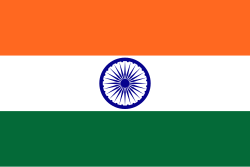History
The organized and uniform collection of tax revenue on salt in British India began under the British Raj. Both before and after that, various native rulers of the Indian Princely states (outside British India proper) collected such revenue in accordance with their own revenue and administrative requirements and resources. In 1856, the government appointed the young William Chichele Plowden, Secretary of the Board of Revenue of the North West Provinces, to report on the establishment of a uniform system of revenue realisation from salt within the British Provinces, and he recommended the extension of the excise system, the reduction of duty, and the introduction of a system of licensing as the measures to achieve this goal. [1]
In 1876, separate departments under a Salt Commissioner were set up, and these operated at the level of each British Province and Presidency. It was with the passing of the Government of India Act 1935, that within British India (which then included much of present-day Pakistan) salt came under the exclusive control of the central government, with the Government of India taking over the task of collecting salt revenue and transferring it from the provincial salt agencies to the Central Excise and Revenue Department. [1] In 1944, the Government of India passed the Central Excises and Salt Act which unified and amended all laws dealing with duties on excise and salt.
The Salt Department was originally a part of the Central Board of Revenue under the Ministry of Finance, but since a reorganisation of the ministries of India in 1957 it has come under the authority of the Ministry of Commerce and Industry. [1]
According to the Union List of subjects under the Seventh Schedule of the Indian Constitution, the "manufacture, supply and distribution of salt by Union agencies; regulation and control of manufacture, supply and distribution of salt by other agencies", is the responsibility of the Government of India. [2] The posts of Salt Controller, Deputy Salt Controller and Assistant Salt Controller were re-categorized as Salt Commissioner, Deputy Salt Commissioner and Assistant Salt Commissioner in 1952 and the Indian Salt Services were created in 1954 for the realisation of the entry under the Union List. [1] The Salt Service has both Group A and Group B wings. [3] [4]
This page is based on this
Wikipedia article Text is available under the
CC BY-SA 4.0 license; additional terms may apply.
Images, videos and audio are available under their respective licenses.

